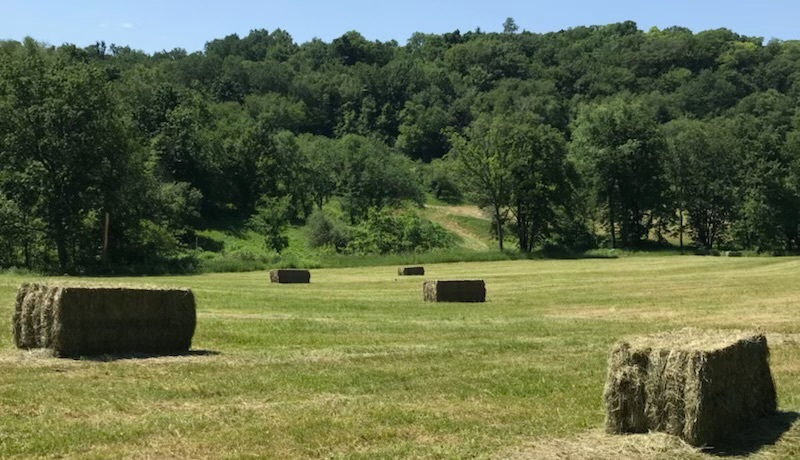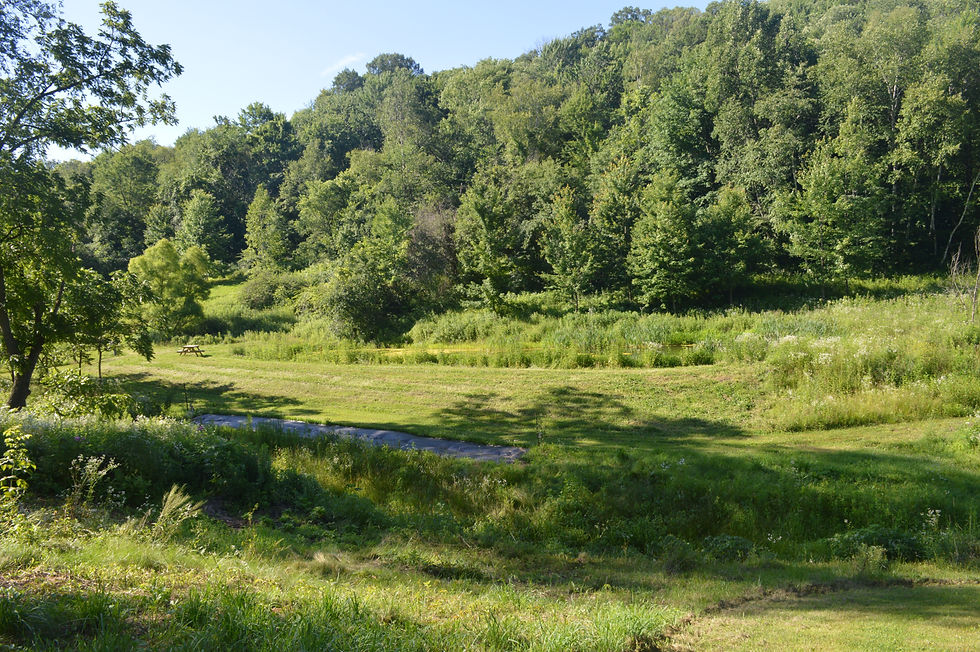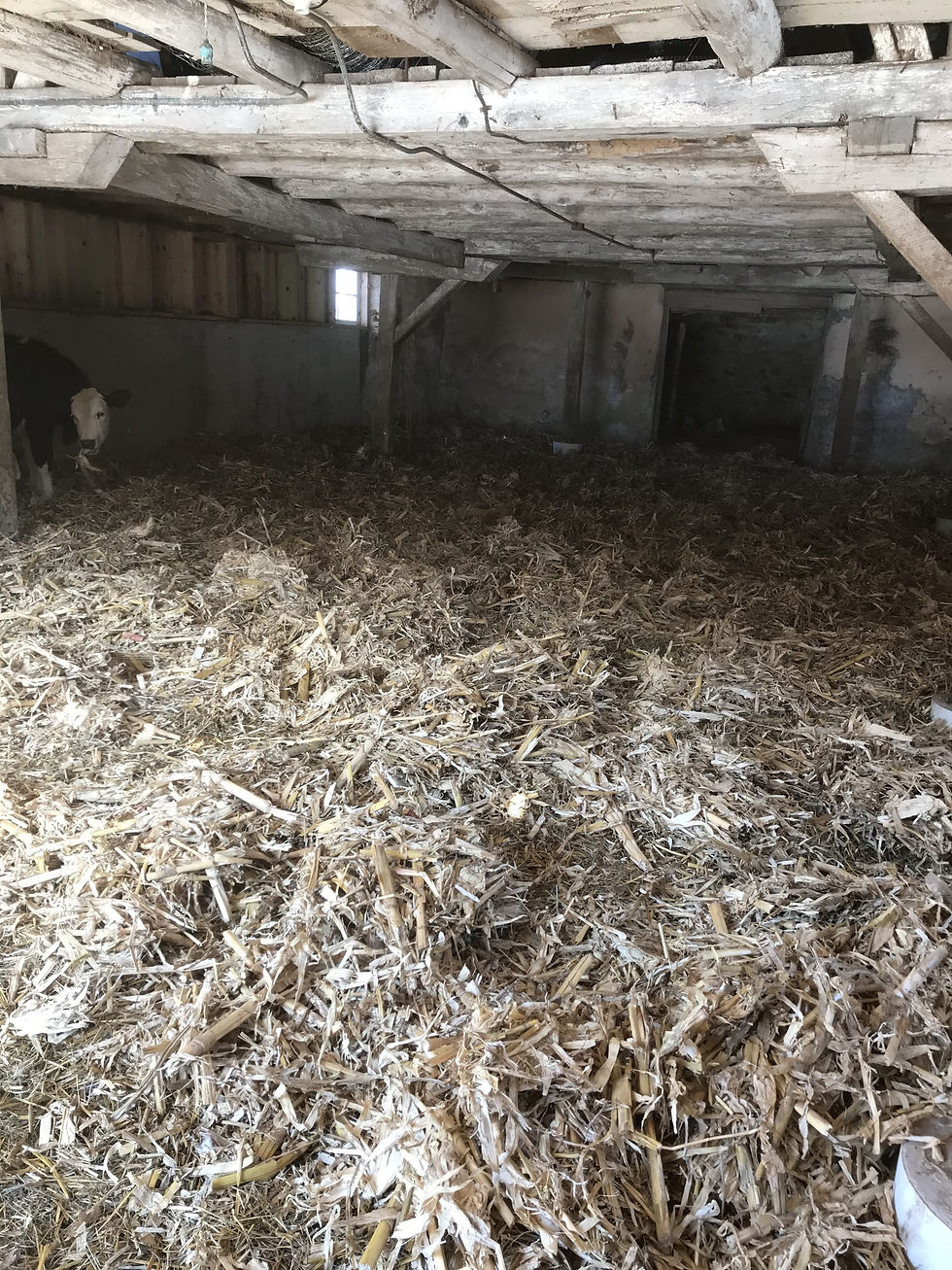A Work Weekend
- Rebecca Clancy
- Oct 21, 2022
- 6 min read
Updated: Oct 22, 2022

“Are things slowing down a bit now that it’s getting colder?” someone recently asked me. The short answer is no.
The long answer is depicted in a rundown of last weekend. Yes, it’s getting colder. That means that growing season is over, and preparation-for-winter season is upon us. And time is of the essence. You want to get your preparation-for-winter out of the way before it gets even colder. It feels great to be outside all day on these bright and brisk fall days. It won’t feel so great a few weeks from now.
I warned The Team, now reduced to Herry and Adam due to Avi and May’s defection to college, that it was necessary for them to manage their expectations because the weekend would be a “work weekend.” I warn them to manage their expectations to preempt the following complaint: “Are we almost done?” Herry, being Herry, couldn’t help himself. He had to lodge some form of complaint, so he rolled his eyes. Deep inside, I knew he didn’t mean it. Because on work weekends two uniquely satisfying phenomena inevitably occur: 1. You are lulled into a zone. 2. The work weekend takes on a life of itself.
Our goals for the work weekend were storing up firewood, bringing in the hay, and contending with the compost heap.
The wood stove has proved to be a godsend – keeping us toasty warm while slashing our propane bills. But it burns a lot of wood. Of course, there is a lot of wood on the property, and it comes in various forms.
We had a walnut tree harvest not too long ago. When you have a tree harvest, the logger takes the trunks and leaves the crowns. The crown of a walnut tree is massive. Most of the branches are the size of unsplit firewood logs. We chain sawed them, split them, and stacked them at the time of the tree harvest, but they were leagues away from the woodstove.
There are also small elm trees all over that I girdled. You girdle a tree by chain sawing two parallel rings around the trunk. The xylem and phloem are disrupted, and the trees die and dry in place. These trees, obviously, must be felled first, then chain sawed, split, and stacked, but they were even more leagues away from the woodstove.
Storing up the firewood was a matter of getting all this wood into ready position proximate to the woodstove. It is not backbreaking, but it is monotonous, and monotony lulls you into a zone.
After storing up the firewood, we turned our attention to bringing in the hay. The last cut of hay was sitting out on the Ag Field. A neighbor cuts our hay and takes half as payment. After he took half, we were left with about 10,000 pounds of hay. That is not an exaggeration. It’s a calculation. It left us eight, 1,250 pound rectangular hay bales.
All those bales had to be brought into the barns. It’s a lot of coming and going with the tractor, but before the coming and going, there always seems to be rigmarole that dogs the tractor. The requisite forklift attachment was not attached. “Who left the bucket on the tractor? I muttered to myself, knowing full well that absent Avi and May, there was only one person who could have left the bucket on the tractor. The tractor then, properly implemented, started stalling, so it was necessary to fill the tank with fresh diesel and a splash of diesel tank cleaner we keep on hand.
At last, we were underway with me driving blind (due to a 1,250 pound rectangular hay bale on the fork lift attachment blocking my vision) and Herry desperately gesticulating to me the fashion of an air traffic controller.
That left contending with the compost heap, or I should say contending with one of the compost heaps; hereinafter Compost Heap Central. When I first started making plans for the farm, it was all going to be so very manicured, just like a Norman Rockwell illustration. That’s not a “working farm.” I used to think that the expression “working farm” was nothing more than a way of excusing an amorphous mess. Now that I am living it, a so very manicured farm means you’re putting form over function; in other words, putting on a show.
We have compost heaps all over the place. We compost the manure Dill leaves in the in the barn each morning. That’s a compost heap near the barn. We compost the manure the chickens leave in the coop each morning. That’s a compost heap near the coop. And then there’s Compost Heap Central.
Talk about amorphous – amorphous as well as humongous. Compost Heap Central came into being when we scraped (using the tractor bucket) thirty-year-old manure out of a barn which is roughly the size of a football field -- at least it felt that way when we were scraping. We spread it in an out-of-way area. It was to serve as the ground level of Compost Heap Central. On top of it we constructed a traditional kind of compost heap – green matter largely from kitchen scraps and brown matter from old bedding. Because it was so large, we turned it using the grapple attachment of the tractor. The reason we had to contend with it is that all sorts of stuff had come up in it -- pumpkins, watermelon, tomatoes, and squash -- because of the seeds in the green matter. To contend with it, first we had to harvest it then we had to pull up all the vines.
This is when the work weekend took on a life of itself. Adam inadvertently happened on a brilliant idea. He had in his clutches a dried-out oregano plant that I had asked him to pull up. The reason he held onto it is because he liked to shake it and see the seeds fly out. You can’t imagine how many seeds are on a dried-out oregano plant. Eyeballing it, it looks to be about 100,000. He started shaking them as he walked across Compost Heap Central. “Adam, stop that!” I admonished. “You are defeating the whole purpose. We are trying to keep that kind of stuff out of here!”
Then suddenly it hit me that he was not defeating the purpose at all. He was creating a new purpose. Compost Heap Central could serve as the matrix for a Wild Garden. “Scratch my last order! Keep shaking! Shake harder! Shake faster!” I now admonished him.
I rushed off and came back with the dried-out zinnia flowers I had just dead headed and threw them into the mix. Then I rushed off and came back with dried out basil and thyme plants. Herry rushed off to get some dried out sunflower heads and corn cobs, while Adam and I continued to shake. And of course, the tomatoes, watermelon, pumpkin, and gourds will make a reappearance. It felt like we were creating a sui generis masterpiece. We will know for sure in the spring, but I have a feeling we will be doing a lot of foraging in the Wild Garden. Just as the work weekend was taking on a life of its own, it was over.
Not to bribe but to encourage, I had presents waiting for the boys. In suburbia they may not have appreciated them much, but up here they were received with jubilation – electric blankets.
No, things aren’t slowing down now that it’s colder. That’s okay. Who wishes for things to slow down? That seems like a lame and futile wish. And parenthetically, it's a wish that could never be made in front of a farmer. Living up here, I have created a variation of, “If you can’t say anything nice say nothing at all.” My variation goes, “If you can’t say it in front of a farmer, don’t say it.” It boils down to a prohibition against complaining about the work that inheres in running a farm. Because you’re never going to work harder than a farmer. You’re never going to work half as hard as a farmer. And any complaints made in front of a farmer reveal themselves for what they are – self-indulgent and lazy.
And beyond the satisfaction a work weekend provides in terms of being lulled into a zone and the work taking on a life of its own, there was a deeper satisfaction to this particular work weekend. It’s the satisfaction that comes from preparation. Preparation has been extolled forever. Think of Aesop and the Grasshopper and the Ants. All of nature, for all of time, has prepared for winter. It's hardwired in us.
Preparation may well be the best antidote to life’s perils. Jesus gave witness to this in the most influential sermon of all time, The Sermon on the Mount. “Therefore, everyone who hears these words of mine and puts them into practice is like a wise man who built his house on the rock. The rain came down, the streams rose, and the winds blew and beat against that house; yet it did not fall, because it had its foundation on the rock.”








Comments